Fyles fouls
Natasha Fyles, ALP Chief Minister of the NT, has leapt from one instance of corrupt and dishonest behaviour to another

If, like me, you've been trying to keep up with the barrage of articles in recent days, outlining the 12-dimensional scandal surrounding Chief Minister Fyles and Texan-owned (but Sydney-based) fracking company Tamboran, your head might be spinning.
Mine certainly is. This is an attempt to separate the wheat from the chaff, and identify the significant detail from the mounting evidence and whirling accusations.
TL/DR
Natasha Fyles, the ALP Chief Minister of the Northern Territory, has leapt from one instance of corrupt and dishonest behaviour to another - each of which would be grounds for resignation and potential prosecution in any other jurisdiction. Along the way, she has dragged the members of her cabinet into blatant deliberate deception of the public.
When did history begin?
The current crisis in Palestine has launched a thousand bad-takes that are best met with the illustrative rhetorical. But here we'll take it literally.
Of course, the ugly history of industrial domination of the NT began with colonisation. But I'm no historian, so I'll leave it to others to start the story there.
In another, more focused way, we might begin with the highly contentious and strongly opposed Philips Petroleum gas plant at Wickham Point. I was around for the huge campaign by Save Darwin Harbour, and I could tell the story that way. It entails the granting, then revocation, of planning scheme protections on Middle Arm, now the target of a major gas and petro-chemical industrial development precinct. But although those crimes against nature are plastered in the ALP logo, none of our current parliamentarians were on board then.
To many observers, the story of unprecedented dishonesty and corruption around fossil fuel industrialisation of the NT begins with the former Gunner administration and the Territory Economic Reconstruction Committee. I don't necessarily agree, but I might start there and explain why.
Corrupt by Design
Elsewhere, I've written about the TERC's final report, and explored accusations laid against the lead authors - former NT ALP Chief Minister turned oil & gas consultant Paul Henderson, and former born & bred local turned petrochemical exec - and Trump adviser - Andrew Liveris.
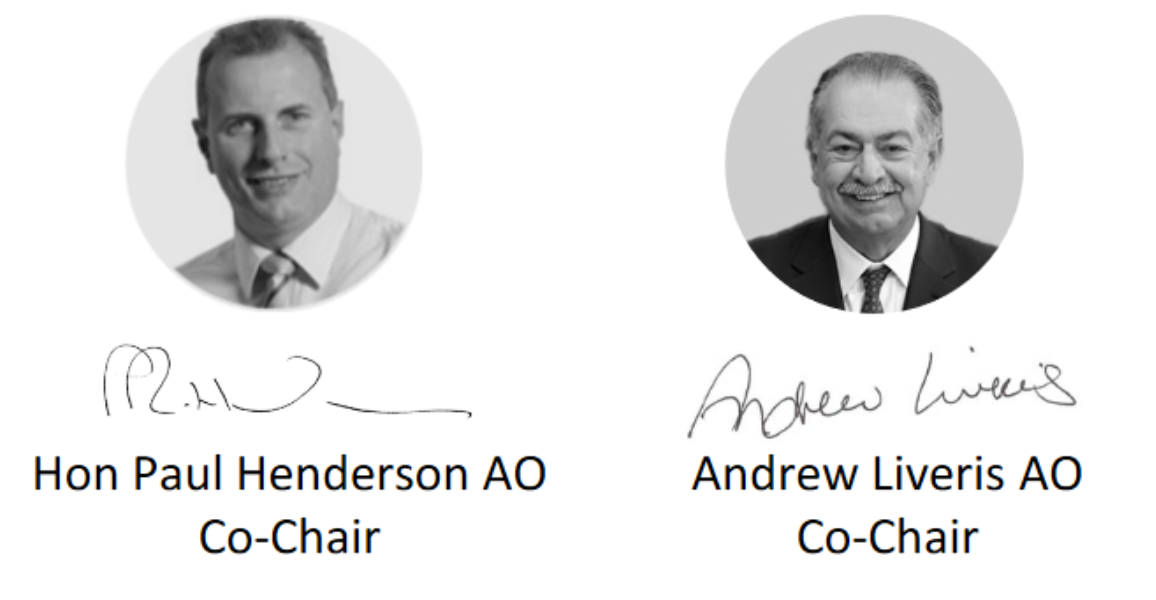
As I described here;
some peeps worry Mr Henderson’s ties to the fossil fuel industry distorts his role on the Commission: that he might be more interested in setting up opportunities for his fossil mates than developing an economy for Territorians;
But clearly, that decision was made before he was engaged.
In fact, the Commission were literally given instructions, titled ‘Operation Rebound’, which were quite specific in assuring a role for gas (maliciously mislabeled as ‘clean energy’).
Corruption is the dishonest abuse of power by individuals in authority for personal interests. But that's not what happened with the TERC. Instead, we find the abuse of power by individuals in the Committee was baked into its design. Chief Minister Michael Gunner had followed the lead of former Prime Minister Scott Morrison, and declared a program for a 'gas fired recovery.'
Messrs Henderson and Liveris were invited, in fact instructed, to pursue opportunities for their fossil fuel interests in the name of 'building back' the NT economy as the nation sought to return to work after the disruption of covid lockdowns. It's not corruption of that abuse was always intended.
dirty? yes. anti-democratic? somewhat. but corrupt? dishonest? no. This was more like the respectable CLP style of proudly owning their worst intentions.
post-truth petrochemistry
The real starting point of this NT ALP government's total abandonment of the electorate came with the referral of plans for an unprecedented project to build a massive new gas industry hub at Middle Arm.
Community advocates quite understandably seized upon components of this ambitious plan: the intention to invite tennants for gas-fueled production plants of petrochemicals including amonia, urea, ethylene, methanol and so-called 'clean' petroleum. In addition to the environmental harm such tennants would present, advocates warned about the harm to human health, particularly on the nearby suburbs of Palmerston. Local paediatricians and international experts alike warned of impacts including a population wide increase in childhood cancers.
And that's when it got messy. In November 2022, Chief Minister Fyles indignantly denied that the plans for Middle Arm included petrochemicals. Government websites were scrubbed of the word 'petrochemical' and the Chief went on to accuse environmental advocates of lying.
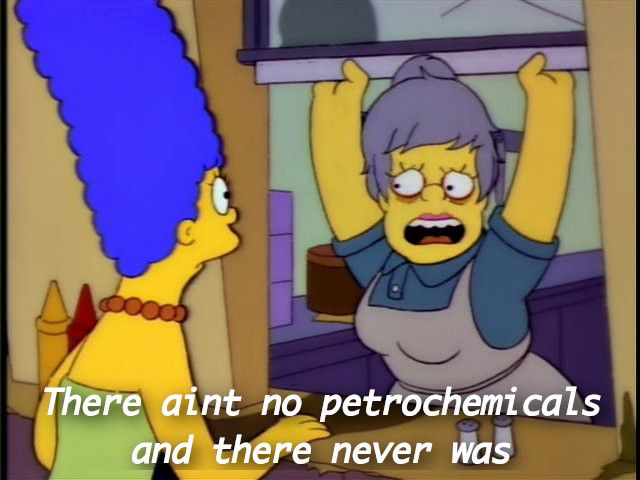
but of course the evidence was everywhere.
As this darwin.news article describes,
Records and documents of other parties to the MAD Precinct plan still feature the 'petrochemical' label.
These included various EPA documents, the TERC progress report, and the website of the NT investment commissioner.
The Middle Arm business case submitted to Infrastructure Australia; evidence by CEO of Tamboran to a senate inquiry; the 'enabling infrastructure' video submitted by NT Government to the feds; fact sheets; commissioned reports - all provide various details of firm plans for petrochemical industries sited at Middle Arm
To this day, the Chief Minister continues to maintain the charade, which is - hilarious, but also disturbing for anyone who values democracy.
dirty? yes. anti-democratic? yes. dishonest? yes.
but corrupt?
Well, that depends. A cynic might suggest that this is just the new style of politics, as pioneered and proven by former (and possibly future?) president Trump. Those four years showed just how much can be achieved by forcefully asserting falsehood. If this is what democracy is about (hint: it's not), then maybe it's not corrupt for political leaders to mislead so brazenly.
Chief's shares
12 months later, news broke that the Chief Minister had failed to disclose ownership of shares in Woodside, a touted tennant of the Middle Arm Development (MAD) precinct.
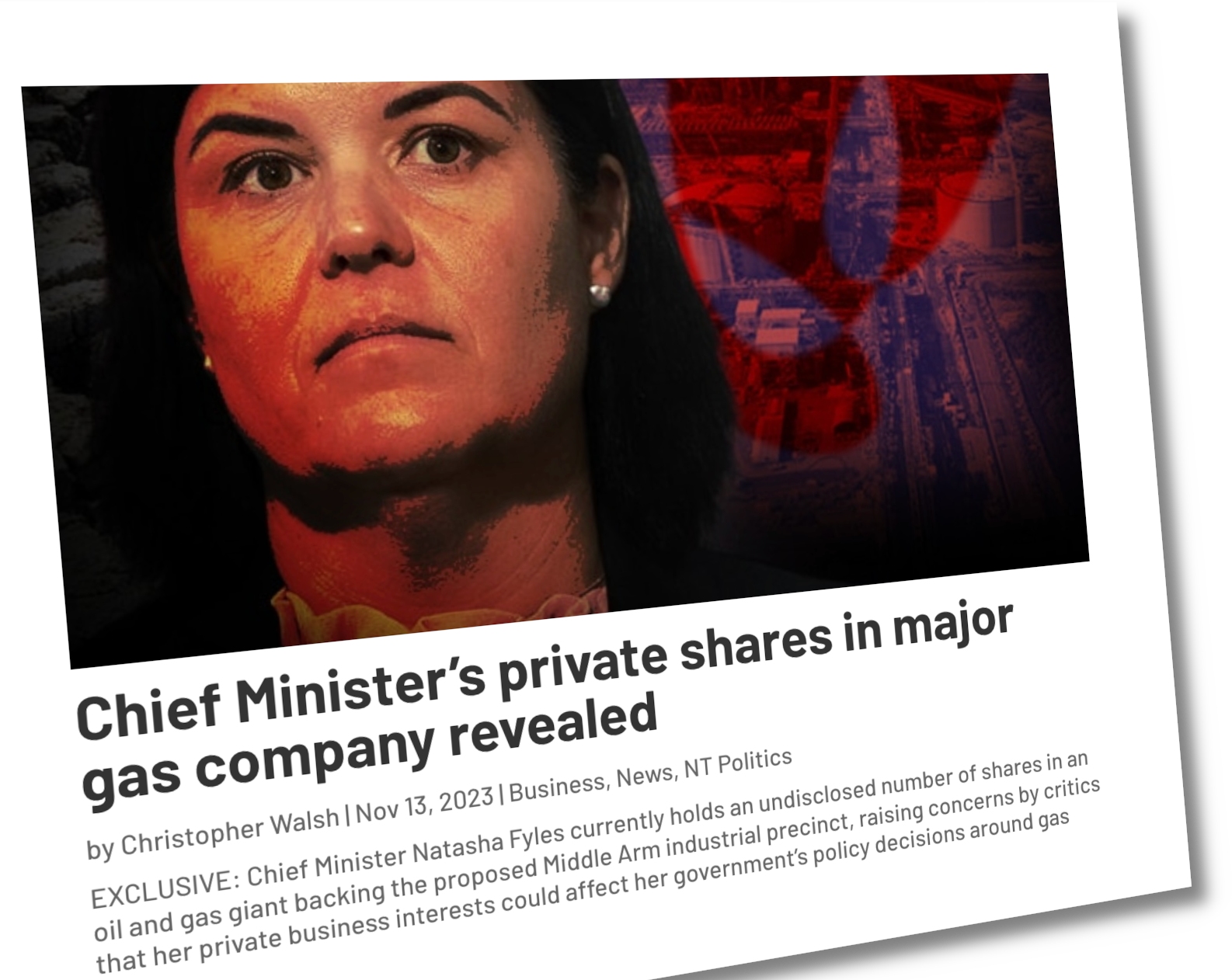
The story first appeared on NT Independent, a web-only publication that successive NT Chief Ministers have refused to recognise as legitimate news media. It was soon picked up by other outlets, and the Chief delivered a range of excuses, delaying the obvious response of divesting.
Whereas the other outlets eventually tired of the story, NT Independent was like a dog with a bone, prosecuting a new angle nearly every day for over a week. Ms Fyles did herself no favours, choosing to argue the point from various directions before eventually, finally, doing the obvious thing she should have done years ago and divesting the small shareholding at the centre of conflict-of-interest claims.
dirty? more like messy. anti-democratic? meh. dishonest? well, somewhat. corrupt? hardly.
The Chief's handling of this issue did engage some deception and misdirection. Where she should have immediately relinquished the small holdings in Woodside, she wasted time and squandered credibility on dishonestly reframing the situation as a non-issue. Her response probably had the utility of allowing those who wanted to support labor to cling on to specious detail in order to believe she had done nothing wrong: the shares were a gift from her grandmother; it was only 159 shares, valued at little more than $5000; they were originally Rio shares, which transitioned to Woodside shares at a later date; she did eventually declare them (albeit later than she should have); she did eventually divest (but not without a lot of media pressure).
Of course, none of these details counters the fact that the Chief Minister, and her colleagues, exhibited disregard for standards regarding declaration and divestment of conflict of interest. But ultimately, the incident was more illustrative than material. Fyles' fumbling of a meager shareholding showed us that the NT still does not have adequate controls to discourage any more substantial conflict of interest.
More lies - emissions offsets
On 4th December, it was The Guardian who found evidence of what many suspected. Despite repeated assurances, NT Government had no intention of meeting the recommendation from the Pepper scientific inquiry, that all domestic emissions from fracking should be offset.
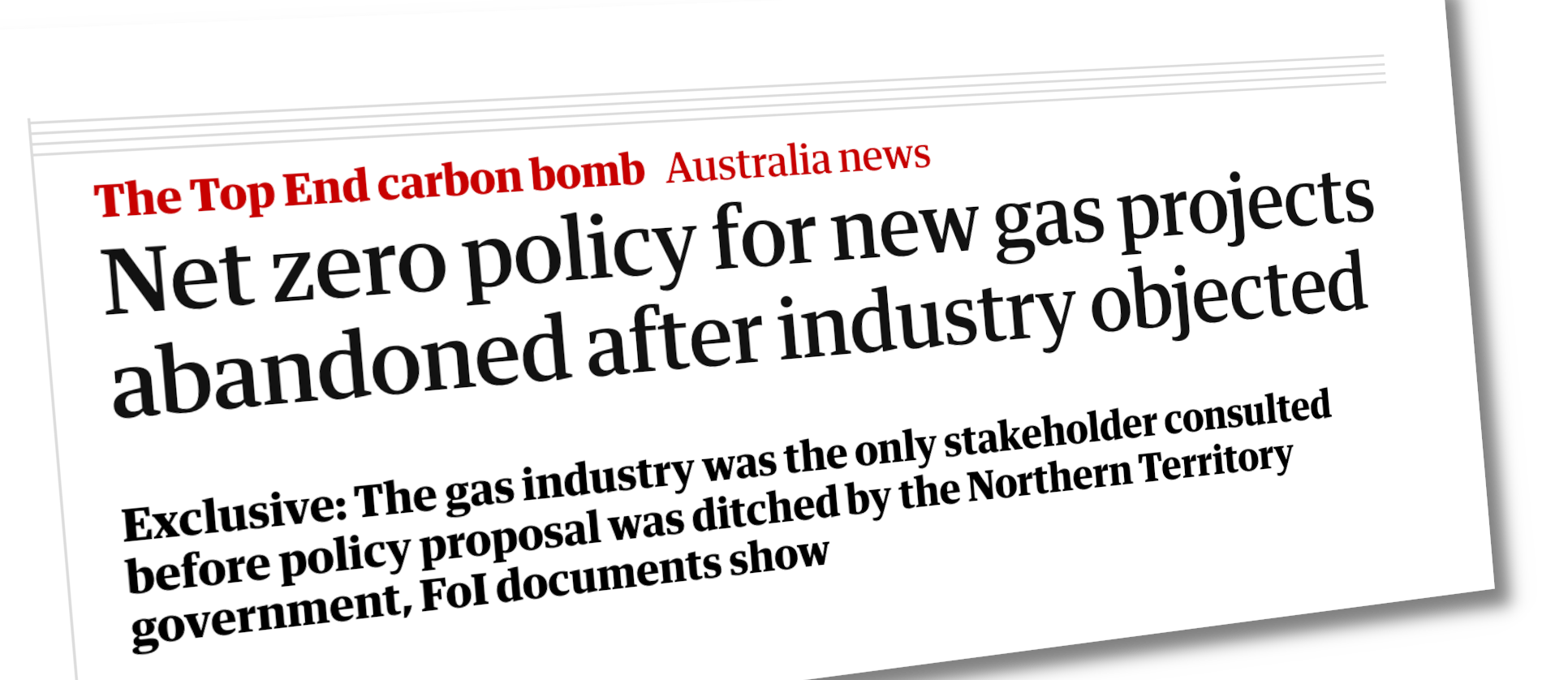
The scientific inquiry into fracking presented 135 recommendations - all of which the NT labor government had promised to implement. Environmental advocates had challenged the status of many, but none was more controversial than recommendation 9.8

When initially proposed, the expert panel baulked at the idea.
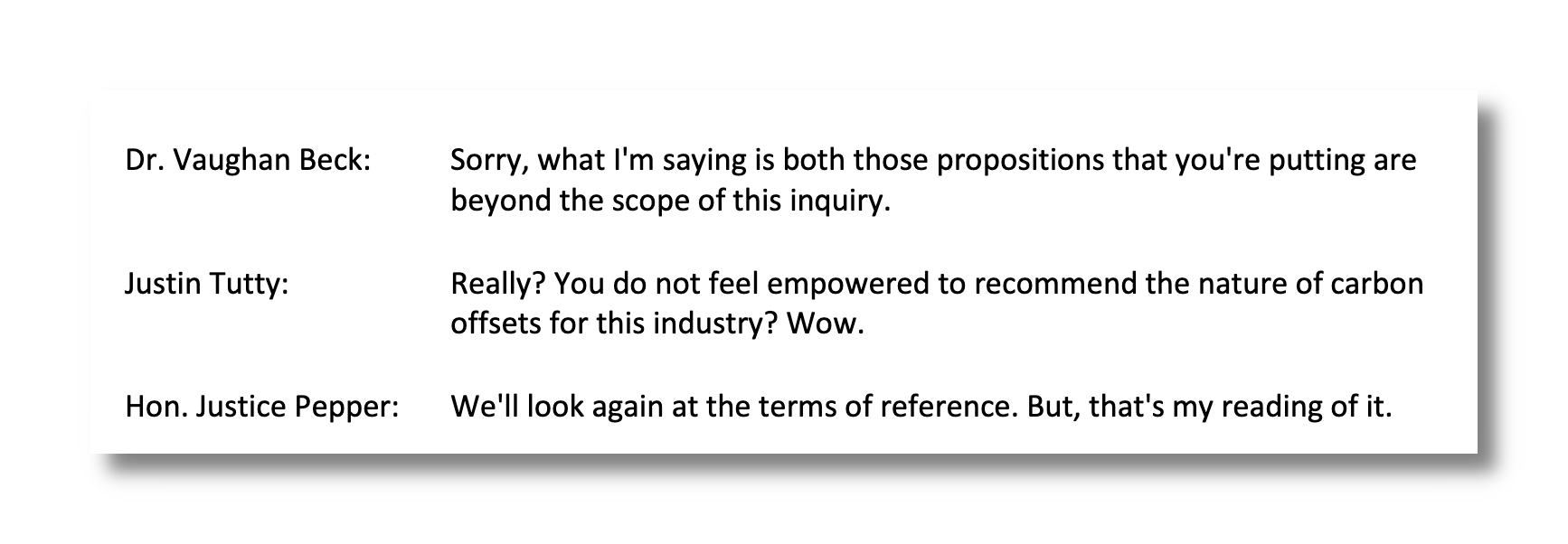
So the appearance of this key recommendation in the final report might have caught other parties off guard.
This recommendation then became a focal point for climate activists who pondered how the industry could possibly proceed while respecting the requirement to offset domestic emissions. Research by the Australia Institute warned that the annual cost of doing so would start in the billions, and could rise as high as $53b.
Freedom of Information requests uncovered correspondence within the NT Department of Environment, which warned:
Full implementation of recommendation 9.8 would place the NT at a competitive disadvantage in attracting gas production and related downstream development
NT Renewables and Energy Minister Eva Lawler sought to share responsibility for this weighty recommendation with the Commonwealth and other states, all of whom pushed back.
When Chief Minister Fyles, upon lifting the fracking ban, made the bewildering declaration that all recommendations had been met, she was squarely contradicted by the independent officer overseeing the implementation of the requirements, David Ritchie.
My report makes it very clear … that [with recommendation] 9.8, we've still got Scope 2 emissions that have not been accounted for.
So back in May this year, it was already apparent that the Chief's claim to have accounted for this requirement was false.
But the magnitude of this deception was only truly realised this week, when the Guardian reported, again on the back of FoI documents, that a draft policy to implement the recommendation was officially dropped following industry objections. This shows that the NT Government had explicitly abandoned draft plans to meet recommendation 9.8 more than six months before Chief Minister Fyles claimed to have done so.
dirty? filthy. anti-democratic? determinedly.
corrupt? It's not obvious that NT Government had any clear responsibility to consult beyond the gas companies, and they say the views of other stakeholders were well known.
but dishonest? absolutely. And a reckless abandonment of truth such as this can only be a corrupting force in politics. To my reading, this deliberate deception, on a key focal point in the controversy over the new industrial threat of shale gas fracking, obliterates this NT ALP Government's credibility.
But wait: there's more...
Lobbyist on staff
The following day, NT Independent was back at it, this time with evidence that Chief Minister Fyles' most senior advisor owned a consultancy that registered as a lobbyist for fracking company Tamboran.
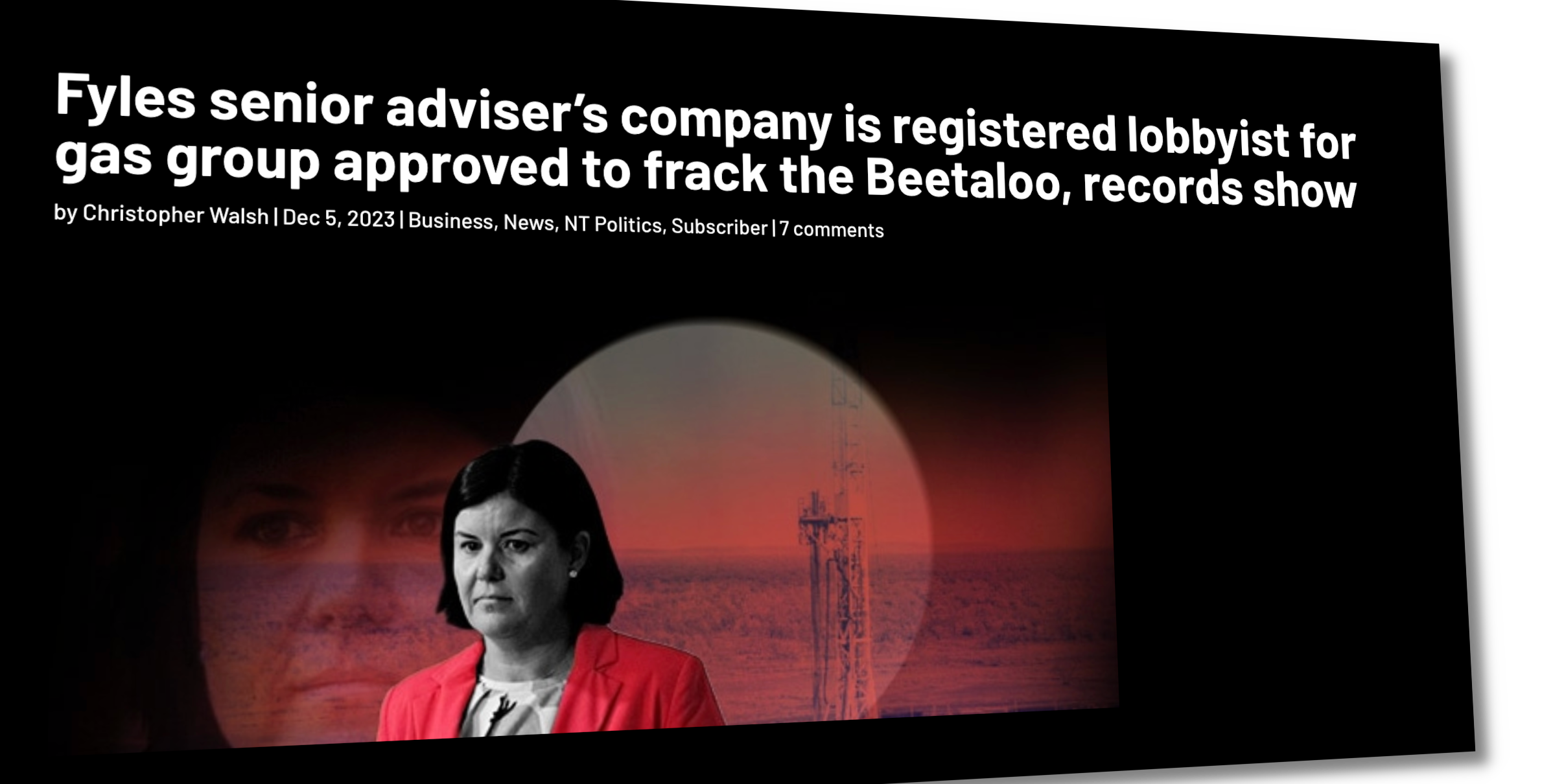
Talk about adding insult to injury.
On Monday, we'd learned that NT Government officially abandoned their commitment to meet Recomendation 9.8 from the Pepper report after extensive lobbying from the gas industry.
On Tuesday, we learned that a gas industry lobbyist is employed in the Chief Minister's office as a senior advisor.
To be precise: Gerard Richardson, Ms Fyles' chief political strategist, owns a consultancy (Brookline Advisory Pty Ltd) in partnership with Lidija Ivanovski (Paul Henderson’s former media adviser) that is registered as the official Commonwealth lobbyist of fracking company Tamboran Resources.
dirty. anti-democratic. dishonest. corrupt.
The only way is out
Despite her predecessor's promises to institute a new era of integrity, it appears that NT integrity and anti-corruption controls remain so weak that this Chief and her cabinet might be able to evade appropriate official and legal scrutiny of these severe misdemeanours. But with credibility shattered, it is essential, for the sake of democracy, that this labor government be discarded at next year's election.
